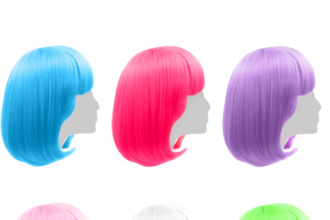Sometimes you can get stuck in a rut. Sometimes it seems like you’ve never been in anything but a mood slump.
You’re not remotely alone in dealing with feelings of depression and low moods. As a matter of fact, a third of Americans report feelings of anxiety and low moods, with a staggering 70% of older Americans not seeking help and suffering mood and anxiety disorders in silence.
Of course, feeling “down in the dumps” is a completely different story from suffering from clinical depression. Yet, the starting points tend to look alarmingly similar. If that’s you, no worries. We’ve got your back. Keep on reading for our full guide on how to improve mood, and get some natural endorphins flowing.

Naturally Improve Mood: The Breakdown
Some key aspects can tremendously help with boosting your mood and improving your overall health. A mood tracker app is an excellent tool to record, analyze and allow you to take better care of yourself. We’ll take each one of those factors and break them down into smaller digestible pieces.
Spend Time With Loved Ones and Friends
Admittedly, if you’re actually dealing with diagnosed depression, then you might benefit more from professional help. But, if you’re dealing with a mood slump, there are different ways to combat that stage of emotional turmoil and feel better.
By keeping close and regular social contact, you’ll get a natural boost in endorphins and self-confidence. The simple feeling of belonging to a community can have numerous benefits when it comes to dealing with sadness.
Play (or Get) a Dog
There’s the simple fact that puppers are beyond cute.
If you’re suffering from a low mood, you can volunteer at an animal shelter, or even pet your neighbor’s (or friend’s) dog for a couple of minutes each day.
There have been studies showing that pet ownership or even simple routine exposure to cute animals can reduce anxiety, stress, and depression. Besides, it’s been found that dog owners usually have lower blood pressure in comparison to their pet-less peers.
Playing with a dog can naturally increase your body’s levels of feel-good chemicals, like endorphins and serotonin.
Schedule a Massage Session
Most of us spend way too much time in our heads that we tend to forget to give some love to our bodies. Getting a massage whether, from a professional or a partner or friend, the result is one: a mood boost.
You’d be surprised to find that massage is actually recommended by professional therapists as one of the things you can do routinely to manage depression. It’s one of the many great ways to ease the mind-body connection, like meditation, art therapy, and acupuncture.
Get Some Exercise
Exercising regularly isn’t only beneficial for your body, but it can also work as a great mood booster.
We’re not talking about running a 5K every week, but don’t underestimate the power of getting 10 minutes of daily walking (or running) on your mental health.
If you’re in the market for a new method of exercising, you’ll probably want to pick an aerobic exercise, since they’re the ones found to boost serotonin the most.
Yet, if you’re more into calming flows like yoga or pilates, that can also work for you. The sky is the limit really, so if you’re a fan of the outdoors, you can go hiking or biking.
Why Exercise Works for Boosting Your Mood?
We know that getting some exercise has been marketed as a solution to all of your physical and mental ailments. But, we want you to know why that’s the case, instead of just using “exercise!” as a buzzword.
So here are the main reasons why exercising is a great tool in combating depression and boosting your mood:
- Increases your level of endorphins, which are natural mood lifters
- Help fight chronic depression by increasing serotonin, which is an essential chemical for regulating your sleep, mood, and appetite, as well as a brain-derived neurotrophic factor. That’s a fancy way of saying that it’s a chemical that can help your neurons grow.
- Reduces immune system chemicals that can make depression worse.
- Helps regulate your sleep cycle.
- Great habit creator that can give you a sense of accomplishment.
- Limits the negative effect of stress on your brain
Eat Healthily
Considering that “eat healthy foods” is a rather vague statement, we’re going to take a deep dive into the effects of good foods on your mental and physical health.
We’re already familiar with the negative effects of indulging in too many sweets when we’re feeling sad or stressed. It gives us a momentary sense of satisfaction, oftentimes followed by a sugar crash, irritability, and feeling even worse about ourselves.
As an unbalanced diet can make us feel bad, having a balanced diet can boost our mood and our well-being in general. Here are some of the most popular foods and supplements you can integrate into your diet for great mood-lifting results.
Eating Foods Rich in Omega-3 Fatty Acids
There’s a growing body of evidence showing that foods high in omega-3 fatty acids, like oily fish, might have a significant role in the brain’s natural functions and processes. Deficiencies in omega-3 fatty acids have been directly linked to mental health issues.
An example of such a study can be found in the Journal of Epidemiology and Community Health, where researchers have examined the link between fish consumption and the risk of depression.
The study shows that people who have consumed the highest amounts of fish were the least likely to exhibit depression symptoms. Admittedly, this link doesn’t prove causality, but it highlighted a solid connection between higher rates of omega-3 fatty acids and better mental health.
Examples of foods that are high in omega-3 fatty acids:
- Sardines
- Walnuts
- Mackerel
- Wild Alaskan salmon
- Other oily fish
- Flax and chia seeds
- Anchovies
- An herb called Purslane
- Canola oil
Besides, you can include whole foods, as well as other good sources of omega-3 oils, like flaxseed oil, fish oil, and echium oil. Yet, if you’re pregnant, nursing, or dealing with a specific medical condition that requires prescribed medication, you’ll want to double-check your dietary changes with your healthcare provider.
Add on Probiotics
Even though probiotics are more known for their digestive health benefits, there is an emerging body of research that shows the direct correlation between the gut bacteria and the signals it sends to the brain, also known as the gut-brain axis.
When you consume a probiotic supplement, you get to improve both your gut issues, as well as depression symptoms, especially if you’re already suffering from irritable bowel syndrome (IBS). A study has shown that 64% of the participants that have taken a probiotic had decreased their depression symptoms, in reverse to the 32% of people who were taking a placebo.
You can increase your intake of probiotics with the following foods:
- Kefir
- Buttermilk
- Korean kimchi
- Yogurt
- Miso
- Picked vegetables
- Tempeh
- Sauerkraut
Nevertheless, you’ll want to keep a close on whether you can partake in probiotics or not. Since probiotics are made of bacterial colonies, you’ll want to ensure that you’re not immunocompromised to avoid the risk of contracting an infection, like bacteremia or fungemia.
Integrate Delta-8 THC Into Your Daily Routine
If you’re unfamiliar with Delta-8 THC, it’s perfectly alright.
It’s the lesser-known relative of the common THC included in marijuana products. It has similar anxiolytic, analgesic, appetite-stimulating, neuroprotective, and antiemetic properties.
Since Delta-8 THC can bind to the same cannabinoid receptors in the brain, just like Delta-9 THC. But, what’s great about Delta-8 THC is the milder and soothing high that it can grant you instead of the sharp stimulating high that your traditional THC (known as Delta-9 THC) is more commonly known for.
You can consider it as a “diet” or “lite” version of THC, so click here to read more about this compound and the host of benefits it can give you.
Go for a Regular Nutritious Breakfast
While there isn’t a concrete body of research to back up the theory that eating breakfast regularly is linked with fewer depressive symptoms, it’s still helpful to keep a good and healthy diet which includes picking a healthy breakfast.
As we wait for additional research to be conducted on the effects of regular breakfast on our mood, here are some of the best breakfast foods you can eat.
Foods Rich in Fiber
You can always go for foods that are rich in fibers and good fats. For example, oatmeal is rather rich in soluble fiber, which can be great for smoothing out blood sugar levels due to the slow rate of sugar absorption into the blood.
If you’re getting sick of rolled-oats, you can always give steel-cut oats a try. But if you’re completely turned-off by oatmeal, you can always go for whole grains, apples, nuts, and citrus fruits.
Increase Your Intake of Leafy Green Vegetables
The key ingredient that makes leafy green vegetables so beneficial for your health is the B vitamin folate, which you can find in spinach and other green vegetables.
It’s one of those compounds that don’t necessarily make you feel amazing once you’ve ingested it, but its deficiency can cause you a host of problems.
For instance, folate deficiency can hinder your serotonin, noradrenaline, and dopamine metabolism, all of which are critical to your mood moderation and mental health.
Here are some of those folate-rich foods that you can add to your diet:
- Artichokes
- Okra
- Edamame
- Spinach
- Avocado
- Lentils
- Broccoli
- Turnip greens
Interestingly enough, you can find folate in vegetables that aren’t even green in color. For example, folate can be found in beans and lentils. Yet, you’ll want to get it cleared with a medical professional whether you’re supposed to take folic acid in the form of supplements. If you’ve dealt with cancer or colon polyps, then it might cause some adverse effects.
Get Your Caffeine (in Moderation)
The moment we say that you should partake in caffeine, people focus on the “partake” part and ignore the “moderation” part.
Ordinarily, caffeine is a great trigger for releasing some of the happy brain chemicals like dopamine. Sounds great, but caffeine might affect some people negatively. So if coffee tends to make you feel irritable, jittery, sleepless, or even sad, then you can always go for low-caffeine drinks like black and green tea, or even go caffeine-free and drink rooibos tea.
If you’re looking for the right drink with the perfect mix of natural sweetness and gentle caffeine boost, you might be interested in trying Chai. It’s Indian tea made out of black tea leaves with the addition of lovely spices like cinnamon and cardamom.
Include Foods High in Vitamin D in Your Diet
Vitamin D is one of those chemicals that can truly boost your mood. It’s known as the sunshine vitamin and your body tends to naturally release it when your skin gets exposed to the sun’s ultraviolet B (UVB) rays.
Research has shown that there’s a link between the lack of vitamin D and the onset of mood disorders like seasonal affective disorder (SAD). There is also some preliminary research that suggests that having a vitamin D deficiency is a risk factor for depression, especially in older adults.
Some people are at higher risk of having a vitamin D deficiency than others. For example, folks with dark skin tones have more melanin, which can protect them from UVB rays, but it’ll also prevent their bodies from creating vitamin D.
If you’re working indoors all day, or you live in an area with higher degrees of air pollution, this might prevent sufficient amounts of UVB from reaching your skin, which increases your risk of vitamin D deficiency.
You’ll want to add foods that are rich in vitamin D into your diet, as well as ones with high rates of omega-3 fatty acids. So go for the omega-3 food list, and add the following:
- Egg yolks
- Cheese
- Drinks or foods that are fortified with vitamin D
If you’re leading a dairy-free life, you can always go for dairy-free milk that is fortified with vitamin D.
Ready to Take Care of Your Internal and External Health?
We understand that in the middle of a mood slump you might not feel up to doing much, never mind taking concrete steps towards revamping your whole diet or social connections.
Yet, if your goal is to improve your mood, then all you need to do is start slow and if you seek further knowledge, please read more. Hopefully, our comprehensive breakdown gave you new ideas or (at the very least) gave you a burst of motivation to change something in your routine today.
Always remember that if your “bad mood” has been going on for long periods of time, you’ll want to check in with a mental health professional.















